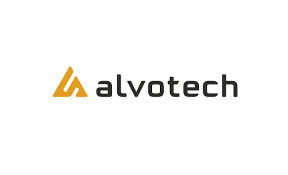- Bone Health
- Immunology
- Hematology
- Respiratory
- Dermatology
- Diabetes
- Gastroenterology
- Neurology
- Oncology
- Ophthalmology
- Rare Disease
- Rheumatology
FDA Delays Review of Alvotech's AVT02 Adalimumab Biosimilar Candidate
Reykjavik, Iceland company Alvotech said the FDA review of its adalimumab candidate is held up by pandemic-related curbs on overseas inspections.
COVID-19 related travel restrictions appear to be hampering the FDA’s review of Alvotech’s adalimumab biosimilar application.
On the heels of announcing that European Union authorities had given a positive approval recommendation for the high concentration, citrate-free adalimumab formulation (AVT02), Alvotech issued a statement saying the FDA was deferring action on the US version of a biosimilar application for this product.
Alvotech said that the FDA needs to complete manufacturing facility inspections to ensure compliance with US standards for drug production and cannot do so because of travel restrictions imposed because of the pandemic. “Alvotech continues to work with the FDA to coordinate the required inspections in a safe and adequate manner,” the company said.
Alvotech filed for US and EU approval of AVT02 in late 2020.
In recent guidance, the FDA explained that the COVID-19 pandemic was slowing down its processing of applications and affecting its ability to conduct site inspections for manufacturing compliance and clinical trials oversight.
FDA Inspection Options
The guidance said that when faced with the impossibility of completing a timely site inspection the regulatory agency would take 1 of 4 actions:
- The FDA will approve the application if there is sufficient information to demonstrate that the facilities are compliant.
- If prior history indicates the facilities or sites were noncompliant and an inspection cannot be performed, the FDA will issue a complete response letter, which means the application is rejected unless conditions change.
- The FDA will issue a complete response letter if an inspection is deemed necessary and there is no other way to verify the adequacy of the site or facilities.
- The FDA will defer action because not enough information about the site or facility is available.
In the case of Alvotech, the FDA has chosen the fourth response option. "Manufacturers, applicants and sponsors, including those working under US government contracts, must comply with the applicable laws and regulations that govern drug development and manufacturing to protect the public health, including during the COVID-19 outbreak," the FDA said in its guidance.
In the United States, Alvotech hopes to gain interchangeable status for the adalimumab candidate. This would allow pharmacists to substitute the biosimilar for the originator product, Humira, without physician intervention. Such a designation is expected to lead to increased use of biosimilars because 1 approval layer is reduced.
Alvotech remains in litigation with the originator company, AbbVie, over patents related to adalimumab, and this legal activity could further stall or delay the arrival of AVTO2 on the US market. There are currently no adalimumab biosimilars on the US market, although 6 have been approved by the FDA.
Although progress for AVT02 in the United States is delayed, the company announced on September 16, 2021, that the European Medicines Agency’s Committee for Medicinal Products for Human Use Committee had recommended approval of AVT02 in the European Union. The approval would be issued by the European Commission, which is the body that has the authority to approve the marketing of drugs in the European Union.
Although the FDA has been stymied by the COVID-19 pandemic, and approved just 3 biosimilars in 2020 and 2 so far this year, it has achieved 2 firsts in 2021: It approved the first insulin biosimilar of any kind (Semglee, insulin glargine), and it approved the first ophthalmology biosimilar (Byooviz, ranibizumab).
The ranibizumab approval was issued just this week, on September 20, 2021. The approval brought a positive endorsement from the Biosimilars Forum, an association of biosimilars manufacturers and developers.
“This landmark FDA approval represents a crucial step in providing lower-cost treatment for millions of Americans, especially seniors who suffer from eye disease,” said group Executive Director Meaghan Rose Smith. “The introduction of biosimilars like Byooviz will increase competition, lower prices, and provide Americans with greater access to effective treatment options.”
Earlier this month, Alvotech reported positive results for a switching study of AVT02. A switching study, which involves patients switching between the biosimilar and reference product several times to verify consistent outcomes, is required to qualify for an interchangeable designation.
Newsletter
Where clinical, regulatory, and economic perspectives converge—sign up for Center for Biosimilars® emails to get expert insights on emerging treatment paradigms, biosimilar policy, and real-world outcomes that shape patient care.

